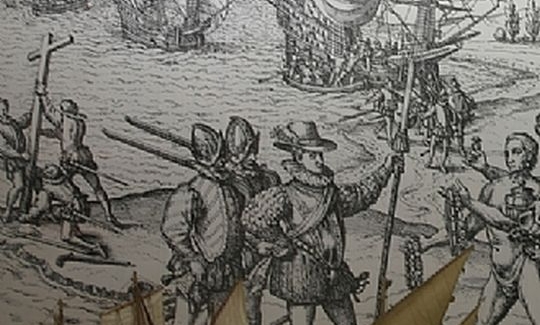During the 15th-16th centuries maritime exploration and colonization reached a peak. It was a decisive phase between the Middle Ages and the beginning of Modern Times. Many new lands were opened to the Europeans due to the efforts of the mariners and thus began the era of European expansion. The leaders of this new era of exploration and discovery were the Portuguese and Spanish, followed by the Dutch and the English.
Exploration of the African coasts was well on its way in the 14th century because the seamen of Portugal were looking for a way to circumnavigate Africa in order to reach the Far East. Columbus, on the other hand, sought to reach India by sailing westwards across the Atlantic Ocean.
Within a short period many geographical discoveries were made. Columbus found the New World in 1492 and his journey was followed by those of John Cabot (1497-98) and Amerigo Vespucci
(1500).
In 1500 Pedro Cabral was sent to India but reached the shores of Brazil instead. In 1519 Ferdinand Magellan set out from Spain with five ships to reach the Malay Archipelago by a western voute. After three years, only one of the ships returned having circumnavigate the world. Magellan himself was killed in the Philippines, but it was due to his effort that a revolution about the roundness of the earth took place. In the following years numerous other voyages of exploration and colonization were undertaken.

